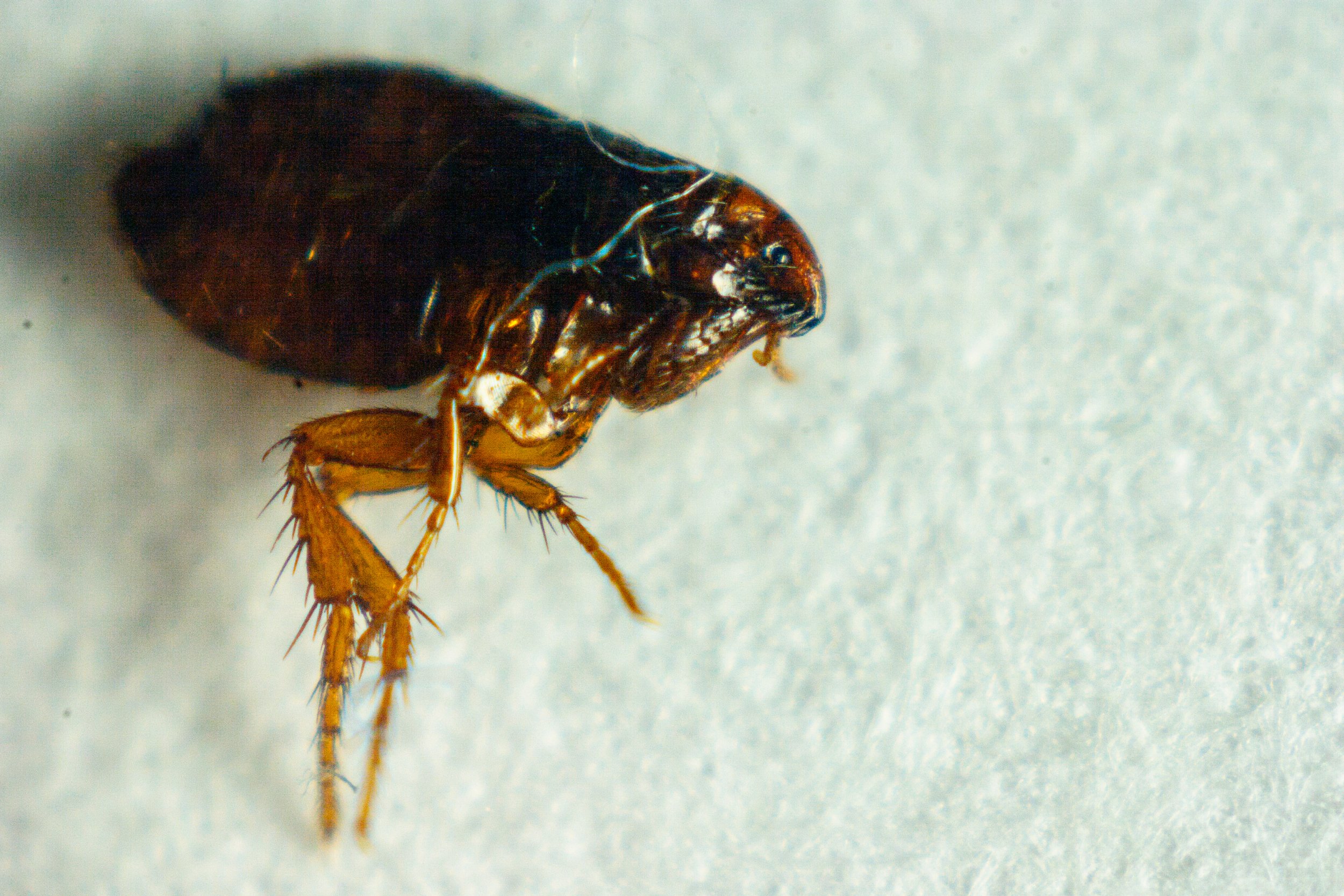
The Los Angeles area has been hit by an outbreak of flea-borne typhus, according to health authorities.
So far, 57 cases have been reported across L.A. County (LAC) in 2018, according to the local Department of Public Health (DPH). Twenty of these originated from the city of Pasadena, where the disease has reached "epidemic" levels this year. Usually, Pasadena sees between one and five cases a year.
Meanwhile, nine cases were reported in the Downtown area between July and September, the LAC DPH said, all in patients who have a history of living or working there. Six of these patients have experienced homelessness or living in interim housing facilities in the area.
Flea-borne typhus can spread to humans through contact with fleas carrying the bacteria Rickettsia typhi and R. felis. People get sick when the infected flea feces are rubbed into cuts and scrapes in the skin.
"Animals, typically rats, feral cats, and opossums, can carry the bacteria and the infected fleas without becoming ill," a spokesperson for the LAC DPH told Newsweek.
While the disease is rarely deadly—no deaths have been reported during the current outbreak so far—in more severe cases, typhus can cause serious complications requiring hospitalization.
Symptoms usually occur 7 to 14 days after exposure to the bacteria and typically include abrupt onset of fever, headache, chills, muscle pain, abdominal pain or vomiting. A rash may appear after 1 week, but may also be absent altogether. There is no available vaccine for typhus but the disease can be treated with antibiotics.
The LAC DPH is currently investigating the outbreak and working with the City of Los Angeles to implement environmental safety measures to reduce the spread of disease. To help prevent typhus infections, the department has made a number of recommendations.
"The LAC DPH recommends that all individuals avoid direct contact with rats, opossums, and feral cats," the spokesperson said. "Pets, such as dogs and cats, that are allowed to spend time outdoors should be protected from fleas with veterinarian-approved animal flea control products, such as flea collars or spot-ons, to prevent them from coming into contact with infected fleas and, in turn, could bring the infected fleas inside."
Furthermore:
- When outside, wear pants tucked into socks or boots. Spray insect repellent with diethyltoluamide (DEET) on socks and pant cuffs;
- Store your trash in cans with secure lids to avoid attracting animals;
- Get rid of places where rats and stray animals sleep, hide or find food, like crawl spaces, attics or under decks. Protect yourself by wearing gloves and a mask when cleaning these areas. Wash your hands when you're finished.
Flea-borne typhus is endemic in LAC with cases detected every year. In recent years, the number of reported cases has doubled to nearly 60 annually. However, geographic clusters of the size occurring in Downtown and Pasadena are unusual. Most cases occur in the summer and fall months.
This article has been updated to include additional comments from the L.A. County Department of Public Health.
Uncommon Knowledge
Newsweek is committed to challenging conventional wisdom and finding connections in the search for common ground.
Newsweek is committed to challenging conventional wisdom and finding connections in the search for common ground.
About the writer
Aristos is a Newsweek science reporter with the London, U.K., bureau. He reports on science and health topics, including; animal, ... Read more
To read how Newsweek uses AI as a newsroom tool, Click here.








